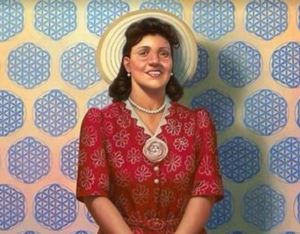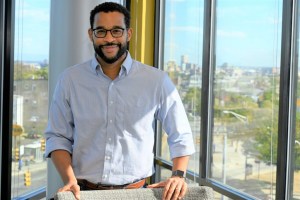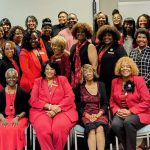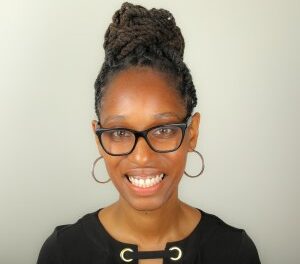
Henrietta Lacks (Courtesy photo)
By Ralph E. Moore Jr.
Special to the AFRO
This article continues the AFRO’s coverage of Henrietta Lacks’ story. Deborah Bailey’s interview of attorney Ben Crump, who’s representing the family, will be on Afro.com for Monday’s #AFRONewsAtNoon.
If you’ve recovered from a serious illness within the last 70 years, you probably have a Virginia-born woman named Henrietta Lacks to thank. Lacks, a married mother of five, was diagnosed with cervical cancer in 1951. She lived in Turners Station, Md. and went to Johns Hopkins Hospital for treatment of increasing pain and unusual blood flow from her womb. Eventually, once she was diagnosed with cancer and before treatment, two tissue samples, each the size of a dime (one cancerous and one healthy) were taken from Lacks body. No one asked her permission to do so and no one ever told her it had been done.
The attending physician to Lacks’ surgery gave the test tubes to a scientist, Dr. George Gey, who had been searching for DNA that could survive outside the human body. The cells were routinely named by using the first two letters of the first and last name of the person from whom they were drawn. Thus HeLa cells were labeled forever because they became the first to reproduce and they continue to reproduce 70 years later according to Mary Toye Kubicek, who was a lab worker in Gey’s laboratory. “Tissue culture was then in its infancy,” Kubicek said. “It was not much recognized at first . And Dr. Gey was very generous. He just gave samples of the cells away so other people could do their own research.”
Multiple tens of millions of HeLa cells have reproduced over the years and have been sold and sent all over the world. They have been used in hundreds and hundreds of research studies. Because of Henrietta Lacks’s miracle DNA, cures have been found for several diseases and more cures could come; because her cells, the only ones able to live outside the human body, are still available for research.
African-American student, Barbara Wyche, a social and behavioral sciences major at Johns Hopkins University, spent time in Turners Station in the 1990s researching and writing about Lacks. At that time, few had heard of the miracle of the Lacks DNA.
Van Smith of the Baltimore City Paper wrote a front page article about Henrietta Lacks that appeared on April 17, 2002. It was entitled, “Wonder Woman: The Life, Death and Life After the Death of Henrietta Lacks, Unwitting Heroine of Modern Medical Science.” In his article, Mr. Smith wrote of Barbara Wyche, “ has dedicated much time and effort to studying Henrietta Lacks.” Ms. Wyche should have written the book about Henrietta Lacks.
On February 22, 2010, Rebecca Skloot, author of the book, “The Immortal Life of Henrietta Lacks” appeared in the Multi-purpose Room of the St. Frances Academy Community Center in East Baltimore to discuss her New York Times best-selling book. Some members of the Lacks family were there. The event was sponsored by the Community Center and the Urban Health Institute of Johns Hopkins School of Public Health. Full disclosure, I was director of the SFA Community Center at the time. The large crowd spilled out into the hallway.
The speakers, during the question and answer period, made it very clear that the Lacks family should be compensated for Henrietta’s breakthrough contribution to medical science. The outrage was palpable throughout the event. Skloot, a science writer, mentioned that a portion of the book sales would go to charity, the Henrietta Lack Foundation, to help members of the Lacks family with medical and educational needs.
The School of Public Health also established an annual Henrietta Lacks Symposium. Two years ago, Johns Hopkins Urban Health Institute director Lisa Cooper, M.D., M.P.H., presented the 10th Henrietta Lacks Memorial Award, a $15,000 award that recognizes the contributions community-university partnerships make every day to advance health equity in Baltimore. A memorial lecture in October each year acknowledges Lacks’ contributions to research and examines important ethical issues. Also, after a rigorous vetting process, Johns Hopkins University officials announced their selection of Vines Architecture, an African-American architectural firm, to lead the planning stages for a multidisciplinary building bear Lacks’ name and honor her legacy. The new building, expected to be completed in 2022, will adjoin the Berman Institute of Bioethics’ Deering Hall and will face the northern end of Eager Park on the Eat Baltimore campus of JHU.
Will these types of acknowledgements: the symposium, the $15,000 award, the proceeds from Skloot’s book sales and the building design and naming for Henrietta Lacks be reparations enough? No! Of course not. The Lacks family has secured the services of mega civil rights attorney, Benjamin Crump, to file a lawsuit. Some call Crump the “Attorney General for Black America.”
Deborah Bailey of the AFRO American is writing about the lawsuit, its ramifications and its chances of success according to legal experts. See next week’s AFRO posts on Afro.com under the hashtag, #AFRONewsAtNoon.
The opinions on this page are those of the writers and not necessarily those of the AFRO. Send letters to The Afro-American • 145 W. Ostend Street Ste 600, Office #536, Baltimore, MD 21230 or fax to 1-877-570-9297 or e-mail to editor@afro.com
Help us Continue to tell OUR Story and join the AFRO family as a member – subscribers are now members! Join here!
The post Commentary: Henrietta Lacks was robbed 70 years ago and the robbers made billions from the heist appeared first on AFRO American Newspapers .











